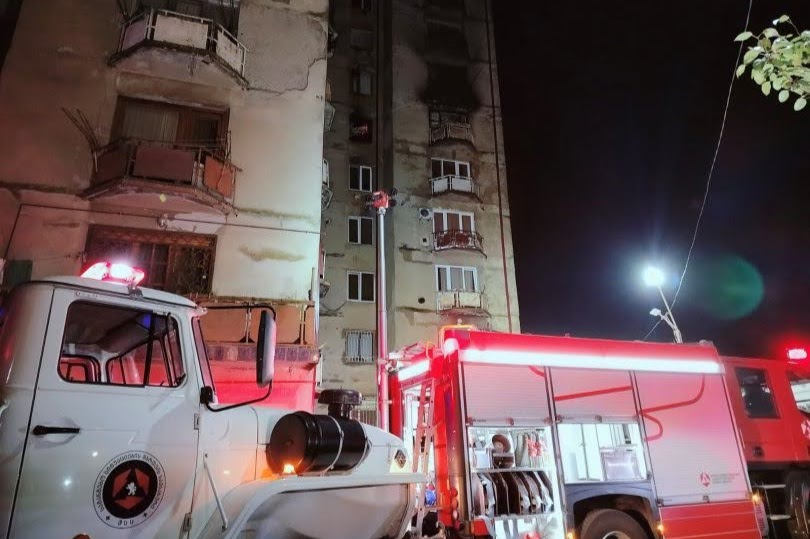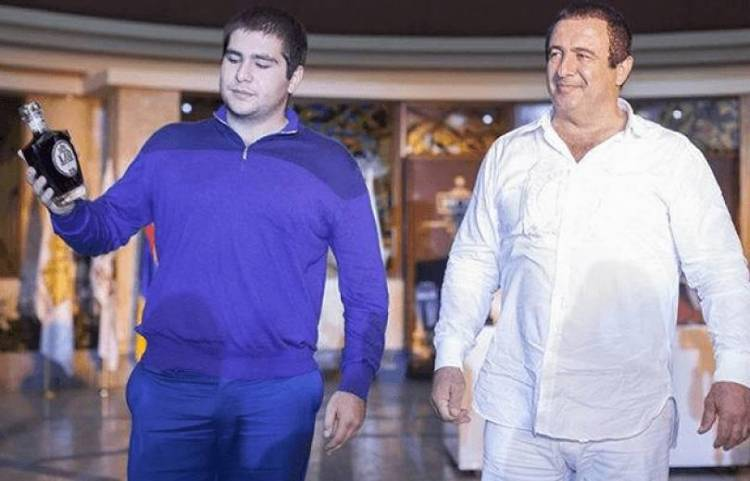Six-year-old twins were killed in a fire in the western Georgian city of Zugdidi on Monday night, sparking controversy and a debate over poverty and adequate social care in the country.
According to an eyewitness, brothers Giorgi Gabunia and Gabriel Gabunia cried for help from a balcony on the sixth floor of a residential building, but firefighters were unable to reach them in time to save their lives.
Preliminary reports suggest that the fire may have been sparked by a candle in the rented apartment, as the household’s electricity had been cut off earlier that day due to the family’s inability to pay for utilities.
Local media reports indicate that the mother of the twins was working a night shift at the time of the fire. The victims’ two older siblings were sheltered by neighbours before being evacuated by emergency services and subsequently hospitalised.
While many Georgians took to social media to express their shock and grief, some also raised concerns about cutting electricity or gas to a household with children, and more broadly questioned social protections in the country.
‘The country’s ruler is dragging baobabs from Africa and is mourning them while children are being killed in this country because they cannot pay electricity bills. We live in this cynical inequality’, Anna Dolidze, chair of the For the People party, wrote on her Facebook page.
[Read more: Ivanishvili-linked dendrological park blasts opposition over death of Kenyan baobab trees]
Pro-government pundits were quick to respond to criticism.
On 13 August, government-aligned media outlet PosTV quoted from a Facebook post written by Nino Pochkhua, who lambasted others for allegedly exploiting the tragedy to attack the authorities. Pochkhua also accused the victims’ mother of enjoying herself in Batumi on the night of the incident.
‘The locals know exactly who she really is! The police had a hard time tracking her down in Batumi, where she was heavily intoxicated, to bring her back to Zugdidi’, wrote Pochkhua.
Despite the original post becoming subsequently unavailable, the allegation was never removed from outlets like PosTV.
Georgia’s State Care Agency issued a statement the same day, in response to widespread criticism of the Georgian government expressed in both the media and online social media platforms.
The Agency clarified that the victims were enrolled in an early development program, and had been reintegrated into their family in April 2023 after being removed by court order in 2018, without clarifying why the children were separated from their guardians.
While the agency noted that they supported the family, which was listed in a national database of socially vulnerable families, they claimed that the twins were not under their direct care at the time of the fire.
Ana Tavkhelidze, a lawyer at the Tbilisi-based advocacy group Partnership for Human Rights, criticised the authorities for their underperforming policies, and warned against blaming the single mother for the tragedy.
‘This shifts the blame away from the state’s responsibility, placing it instead on a specific woman, despite the fact that the state had an obligation to support her as well. This is a reality many women face — they are forced to leave their children at home because there is no other way to provide for them’, Tavkhelidze noted while speaking to TV channel Formula.
Partnership for Human Rights has been a leading voice in advocating against the separation of children from poor families, instead urging the state to fulfil its responsibility by providing these households with comprehensive support services.
Following the statement by the State Care Agency, the office of the Public Defender for Consumer Interests vowed to look into why the family’s power was cut, while the office of Public Defender Levan Ioseliani committed to examining the family situation in the lead-up to the incident.
Ioseliani’s office reiterated that they ‘constantly urge’ the state to ‘create mechanisms that will enable the effective protection of children and the long-term empowerment of families’.
Ioseliani reported earlier that there were 347,295 minors receiving social benefits in Georgia as of last December.




 14 August 2024
14 August 2024



